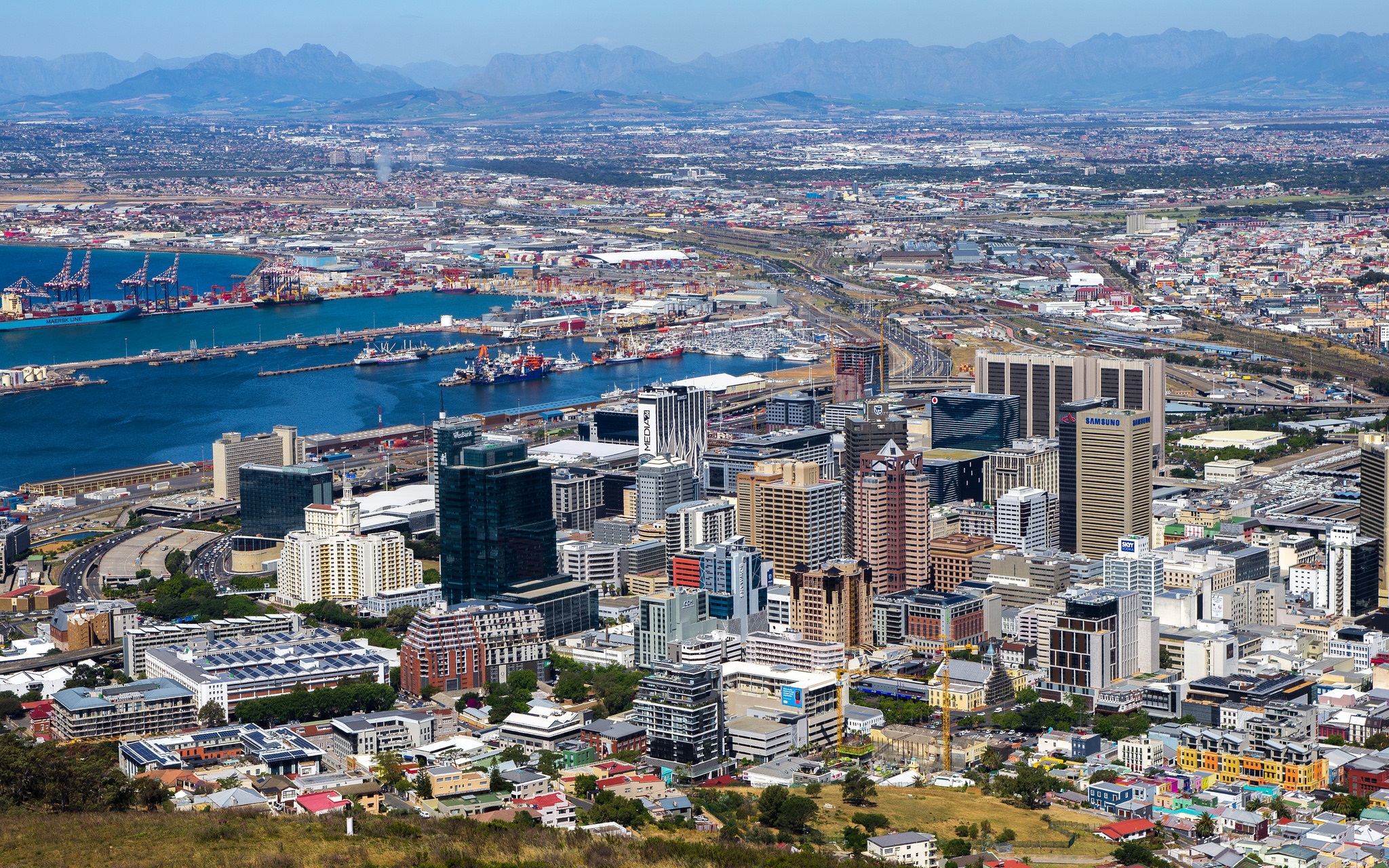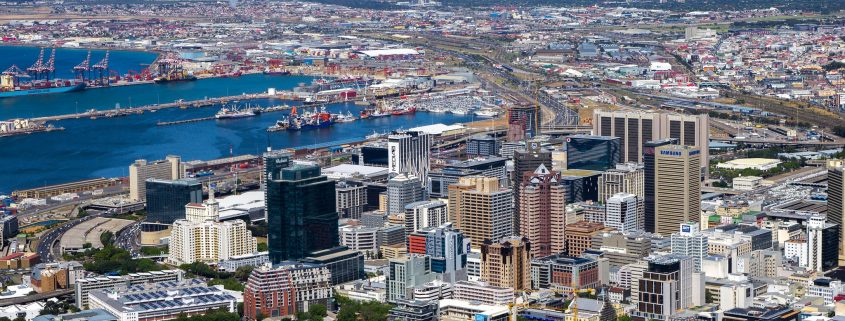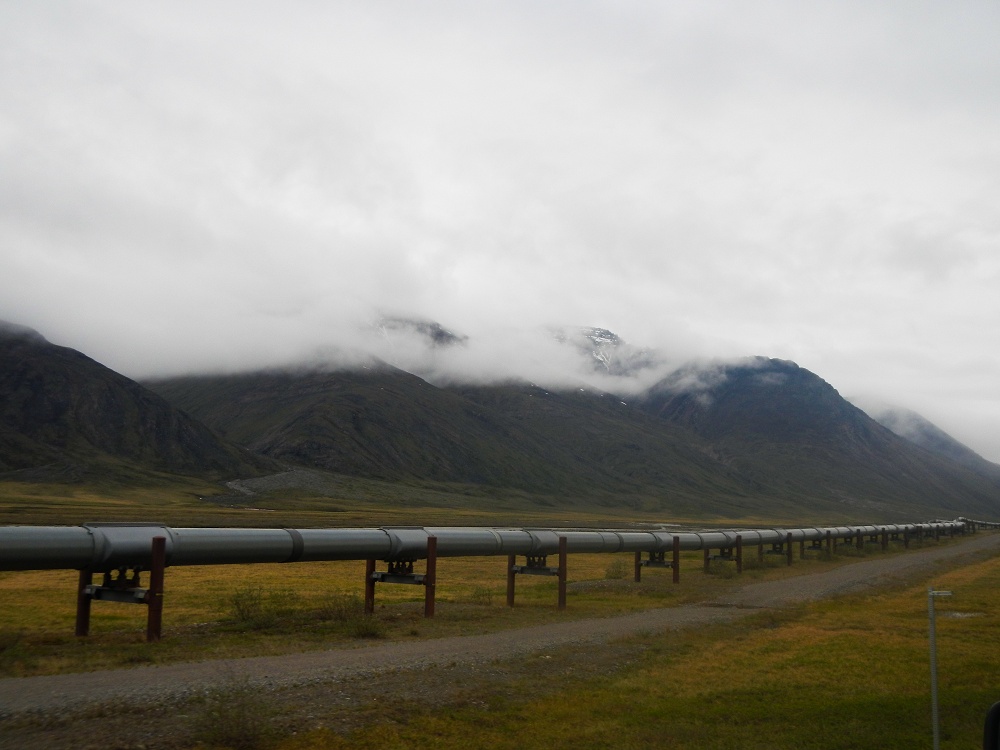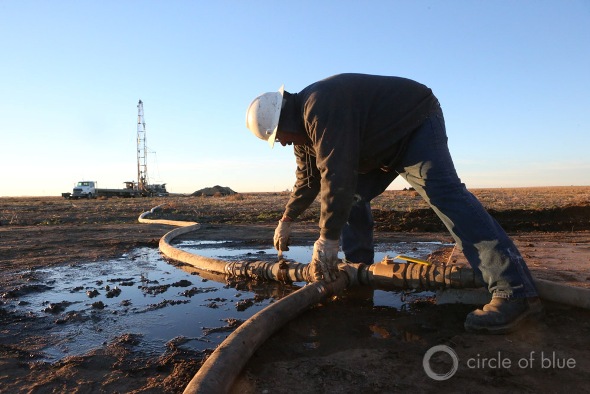Cape Town Pushes Back Day Zero by Nearly One Month
May 11 is now the estimated date when water service will be turned off.

Residents of Cape Town are being asked to limit daily water use to 50 liters per person. Photo courtesy of Flickr/Creative Commons user Gilbert Sopakuwa
By Brett Walton, Circle of Blue
Pointing to declining agricultural water use, Cape Town officials moved Day Zero back nearly four weeks, to May 11.
Day Zero is the day when water service will be shut off to most homes and businesses because of critically low reservoirs. That scenario, which grew more probable after a third dry winter and insufficient conservation, prompted Cape Town to cut water pressure in its distribution system, drill emergency wells, deploy small-scale desalination facilities, and institute severe water-use targets, now at just 50 liters (13 gallons) per person per day.
“All preparations for the possibility of reaching Day Zero continue in earnest,” Deputy Mayor Ian Neilson, who was put in charge of the city’s emergency response last month, said in a statement announcing the adjusted Day Zero timetable.
Water levels in the Western Cape supply system, the network of six large reservoirs that is operated by the national government, fell 0.8 percent in the week ending February 5, dropping to 25.5 percent of capacity. Day Zero comes into effect when combined storage reaches 13.5 percent.
The Western Cape system delivers water not only to the nearly 4 million people in Cape Town and surrounding communities but also to the region’s renowned vineyards and farms.
A few weeks ago, agriculture used nearly half the water released from Western Cape dams. Last week, that number dropped to 30 percent, and Neilson expects it to fall even farther by April, to less than 10 percent, because agriculture will soon reach its seasonal limit on water use.
The Department of Water and Sanitation, the agency that operates the Western Cape system, has already cut water to agricultural users in the Berg River area, according to Trevor Balzer, who is coordinating the department’s response to the drought crisis.
The department is moving equipment into place at the two largest dams to pump water from the depths. Balzer thinks that intensive conservation can prevent such drastic measures.
“I believe that if we work together that the eventuality of running out of water would not happen,” Balzer told Circle of Blue.
Officials frequently remind residents that Day Zero is a moving target — conservation delays the shutdown, and perhaps averts it. Desalination, groundwater, and reuse add marginally to supplies, but city officials do not want to count on them. Many of the larger projects will take one to three years to build, and refilling the dams, even when the rains do return, will be a slow process.
Cape Town residents still have several months until the rainy season, which typically begins in June. Noting that the short-term forecast is for warm weather and the long-term forecast anticipates a dry start to winter, Neilson urged residents to use water cautiously.
“With the hot weather predicted over the week ahead and expected high evaporation rates, coupled with an expected increase in water use by our residents as a result of the weather, we dare not rest on our laurels now,” Neilson wrote. “It will be to the detriment of our efforts as Team Cape Town.”
Brett writes about agriculture, energy, infrastructure, and the politics and economics of water in the United States. He also writes the Federal Water Tap, Circle of Blue’s weekly digest of U.S. government water news. He is the winner of two Society of Environmental Journalists reporting awards, one of the top honors in American environmental journalism: first place for explanatory reporting for a series on septic system pollution in the United States(2016) and third place for beat reporting in a small market (2014). He received the Sierra Club’s Distinguished Service Award in 2018. Brett lives in Seattle, where he hikes the mountains and bakes pies. Contact Brett Walton











